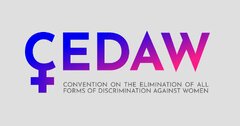FLAC briefs United Nations Committee in Geneva: Gaps in legal aid and weaknesses in anti-discrimination legislation are major barriers to full equality for women in Ireland
19 June 2025

- The United Nations Committee on the Elimination of Discrimination Against Women (CEDAW) will question Ireland tomorrow (Friday, 20 June) on its progress in meeting its international human rights obligations under the Convention on the Elimination of Discrimination Against Women.
- FLAC (Free Legal Advice Centres) is part of a civil society delegation at the United Nations in Geneva in advance of Ireland’s review by CEDAW.
- In a report to CEDAW earlier this year, FLAC highlighted the need for measures to ensure women have access to legal aid in discrimination, harassment and sexual harassment cases; for stronger anti-discrimination legislation which applies clearly to the State and Public Bodies to be advanced urgently; and for a stronger ‘equality guarantee’ in the Constitution.
The 91st session of CEDAW is taking place from 16 June to 4 July 2025 at the Palais des Nations and will include the examination of Ireland’s most recent report to the Committee. FLAC will engage with CEDAW members in relation to the key areas of access to justice and equality/anti-discrimination law.
Speaking in advance of Ireland’s examination by CEDAW, FLAC Policy & Public Affairs Manager Christopher Bowes commented:
“FLAC has highlighted the urgent need for law reform in the areas of legal aid and anti-discrimination law in order for Ireland to achieve gender equality and meet our CEDAW obligations.
Ireland is in the midst of a legal aid crisis. FLAC cannot meet the demand for early legal information and advice we encounter. The State’s Legal Aid Board has no power to provide early and preventative forms of legal assistance and FLAC cannot bridge the gap. There is a complete ban on the Legal Aid Board providing representation in cases heard by the WRC, including gender discrimination, pregnancy discrimination, maternity protection, sexual harassment and equal pay cases. This ban needs to be lifted along with a significant enhancement of the powers and resources of the Legal Aid Board.
Ireland’s anti-discrimination legislation has been under review since 2021. The legislation to give effect to the review should be advanced urgently and amended to bring the State, public bodies and key areas for achieving full equality (such as health, social housing, education and social welfare) within the scope of the Equality Acts. The State should also commit to amending the Constitution’s equality guarantee to include strong positive action provisions and a list of protected grounds including gender.
The rejection of the family and care referendums in 2024 was, in part, an expression of the demand for stronger, enforceable social rights for groups including women, people with disabilities and paid and unpaid carers (who are mostly women). The State’s engagement with CEDAW and its response to its recommendations are a golden opportunity to respond to that demand.”
FLAC’s report to and engagement with CEDAW are informed by our first-hand experience of promoting gender equality and access to justice for women and girls across various areas of its work. The majority of callers to FLAC’s Telephone Information and Referral Line are women. FLAC provides thousands of women with early legal information and advice in the areas of family and employment law each year. Since 2015, equality/discrimination has consistently been one of the areas of law in which FLAC most often provides legal representation. FLAC frequently represents women who have experienced intersectional discrimination, including Roma women who wear traditional Roma attire and who experience discrimination on the basis of their ethnicity and gender.
ENDS.
Read FLAC’s full report to CEDAW here.
ABOUT FLAC: FLAC (Free Legal Advice Centres) is an independent human rights and equality organisation which exists to promote access to justice. FLAC operates a telephone information and referral line (from which approximately 12,000 people receive basic legal information each year) and phone advice clinics (from which over 3,300 people received basic legal advice in 2023). As an Independent Law Centre, FLAC takes on a number of cases in the public interest each year. We also operate a Roma Legal Clinic and Traveller Legal Service. FLAC undertakes policy and law reform work in relation to human rights and access to justice, and in areas where we frequently provide legal assistance.